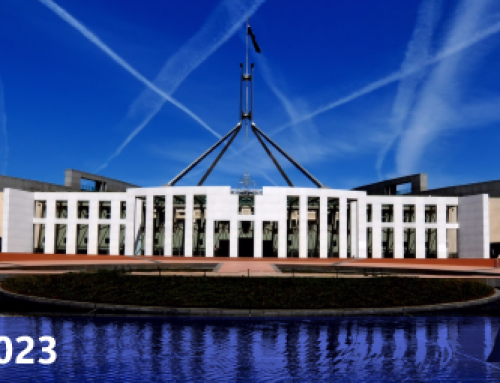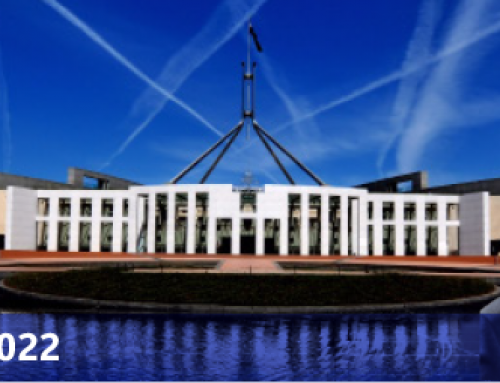Tonight, 9 May 2017, the Treasurer, Scott Morrison, delivered his second budget in which he focused on housing affordability, infrastructure and growing the economy. This newsletter summarises the key points from the 2017 Federal Budget.
First Home Saver Scheme
From 1 July, 2017, a First Home Saver Scheme will be introduced to help those saving for their first home in which to live. The scheme is designed to allow prospective first home owners to save tax effectively, using pre-tax dollars by making salary sacrifice contributions into their super account.
As with normal salary sacrifice contributions, these contributions will be taxed at 15% rather than at the individual’s marginal tax rate. However, first home saver contributions will be limited to $15,000 in any one financial year and are subject to a lifetime limit of $30,000. Importantly, any first home saver contributions will also count towards the individual’s annual superannuation concessional contributions cap (which is $25,000 for all in
2017-18).
First home saver contributions can be withdrawn from 1 July 2018 and will be returned with interest (calculated at the 90 day Bank Bill rate plus 3%). Withdrawn amounts will be taxed at the individual’s marginal tax rate (plus Medicare Levy) less 30%.
Benefits released will not impact HECS/HELP repayments, family tax benefits or childcare benefits.
Elderly Australians who downsize can boost their super
rom 1 July 2018, homeowers aged 65 and over who sell their home (principle place of residence) will be able to put up to $300,000 each (i.e. both members of a couple can make this contribution, giving total contributions of $600,000) into their super account as an after-tax non-concessional contribution. To be eligible to make this contribution, the home must have been owned for at least 10 years prior to sale.
This type of contribution is exempt from the annual non-concessional contribution limit of $100,000 which applies from 1 July 2017. In addition, eligible individuals who wish to contribute part of the sale of their home to super will be exempt from the usual voluntary contribution rules including meeting the work test, the prohibition on making contributions to super after age 75 and the restriction on making further non-concessional contributions to super once the individual’s super account balance reaches $1.6 million (although the $1.6 million super to pension transfer limit still applies).
Pensioners should note that sale proceeds contributed to super under this new measure still count towards the pensions asset test.
Medicare Levy to increase by 0.5%
From 1 July 2019, the Medicare Levy will increase by 0.5% (from 2% to 2.5%). The extra funds raised will be used to fund the National Disability Insurance Scheme (NDIS).
Temporary budget repair levy to cease
Since 1 July 2014, employees with taxable income over $180,000 per annum have had an additional 2% tax deducted for the budget repair levy. As previously announced by the government, this levy ceases from 1 July 2017.
New Temporary Employee Visa Levy to create the Skilling Australia Fund
For employers who rely on foreign workers to fulfil their workforce requirements which cannot be filled by Australian employees, a new levy will be imposed from 1 March 2018 depending on business revenue.
For smaller employers with less than $10 million in annual revenue, the levy is $1,200 per annum for each temporary visa holder they employ. If an employee is on a permanent skilled visa sponsorship, then the levy is a once-off payment of $3,000.
For larger employers with more than $10 million in annual revenue, the levy is $1,800 per annum for each temporary visa holder they employ. If an employee is on a permanent skilled visa sponsorship, then the levy is a once-off payment of $5,000.
Levy funds collected will be placed in a newly created “Skilling Australian Fund” which will provide funding support for Australians undergoing traineeships and apprenticeships in careers that are in high demand and have relied on skilled workforce visa migration.
This measure is expected to raise $1.2 billion over the next four years.
‘Ghost Tax’ for foreign investors with vacant properties
The Government will impose a penalty tax, equal to the foreign investment application fee (a minimum of $5,000), on foreign owned residential properties that are not occupied or rented for at least 6 months in a year. This measure is designed to discourage foreign investors from purchasing residential properties and leaving them vacant.
Other ‘Affordable Housing’ measures
National Housing Finance & Investment Corporation
The Government will establish the National Housing Finance & Investment Corporation (NHFIC) which will provide bonds to the wholesale market – enabling lower cost, longer term finance to providers and developers of community and social housing.
Measure to increase supply
To help improve supply, the Government will increase the rate of release of Commonwealth land (starting with 127 hectares of unused Defence Department land in Maribyrnong (VIC), planning and re-zoning reform and setting supply targets with the States & Territories.
Incentives for private investment in affordable housing
To incentivise more private investment in affordable housing the Capital Gains Tax discount for individual investors who purchase affordable housing will increase from 50% to 60%.
Stricter Negative Gearing Rules
Residential property investors will no longer be able to claim deductions for any travel expenses, including in relation to inspection, maintenance and collection of rent. Note that expenses for investors who engage third parties such as real estate agents will still be deductible.
Economy
The economy is improving
- Real economic growth is expected to increase to 3% pa over the next 2 years.
- Wage growth is expected to increase from around 2% to above 3% over the next 4 years.
Budget to return to surplus in 2020-2021
The Government plans to return the Budget to surplus in 4 year with a $7.4 billion surplus forecast in 2020-21.
Record investment in infrastructure
The Treasurer announced that $75 billion will be spent over the next 10 years on an ambitious infrastructure funding and financing programme designed to create jobs and support the economy. Some of the programme’s cornerstone projects include:
- Establishment of the Western Sydney Airport Corporation to build and operate a new airport at Badgerys Creek.
- Investment in regional infrastructure with the construction of the Inland Rail link to create a regional freight line from Melbourne to Brisbane. The Government will also establish a Regional Growth Fund for local regional infrastructure projects.
- Outright purchase of Snowy Hydro from the state governments in NSW and VIC.
Other measures of interest
SMSF Limited Recourse Borrowing Arrangements (LBRAs)
From 1 July 2017, LBRAs will be included in a member’s total superannuation balance and pension balance transfer cap. The outstanding loan balance of an LBRA will therefore now be included in the member’s annual total super balance and repayments from a member’s accumulation account will be a credit in the member’s transferred pension account.
Energy Assistance Payment
There will be a one-off enegy assistance payment in 2016-17; made to those eligible for certain government pensions and supplelments. The payment amount will be $75 for individuals as $125 for couples.




